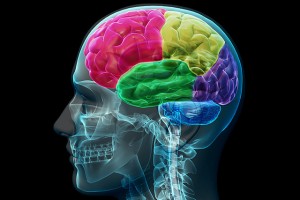What if antibiotics could one day be a cure for something other than a bacterial infection? More specifically, what if they could help with mental illness?
This is what researchers are now looking into with one particular antibiotic that could potentially clear up some of the symptoms of PTSD. (Bach, Tzovara, & Vunder, 2017) Doxycycline is commonly used to fight bacterial infections, such as urinary tract infections and some types of acne. However, a team of researchers have looked at how it can potentially block certain proteins outside of nerve cells, known as matrix enzymes. These enzymes are necessary for our brains to form memories.
Recent lab experiments have revealed that proteins from the extracellular matrix – the space in between nerve cells – are necessary for the formation of memory. Dominik Bach, lead author of the study, went off of the hunch that doxycycline could be used to “dampen” existing memories.
In the scientists’ trial, they recruited 76 healthy volunteers. One group was given doxycycline, while the other was given a placebo. The participants were given small electric shocks and shown colors. The experiment was designed to help the participants associate the shocks with colors. Afterward, their fear responses were measured.
 In the end, the fear response was 60 percent lower in patients who received the antibiotic, compared to their counterparts who received the placebo.
In the end, the fear response was 60 percent lower in patients who received the antibiotic, compared to their counterparts who received the placebo.
“When we talk about reducing fear memory, we are not talking about deleting the memory of what actually happened,” said Bach. “The participants may not forget that they received a shock when the screen was red, but they ‘forget’ to be instinctively scared when they next see a red screen. Learning to fear threats is an important ability for any organism, helping us to avoid dangers such as predators. Over-prediction of threat, however, can cause tremendous suffering and distress in anxiety disorders such as PTSD.”
Today, there are just a handful of treatment options for individuals with PTSD. Cognitive therapy and exposure therapy are the most common, and Eye Movement Desensitization and Reprocessing (EMDR) is another option for helping reactions to triggers. (“Common antibiotic may help to prevent or treat PTSD,” 2017) There is also a wide list of antidepressants and anti-anxiety medications designed to treat some of the symptoms of PTSD. However, an antibiotic that reduces fear response may give patients a new avenue to explore, and it could be especially helpful for those who have lacked success with existing medications.
